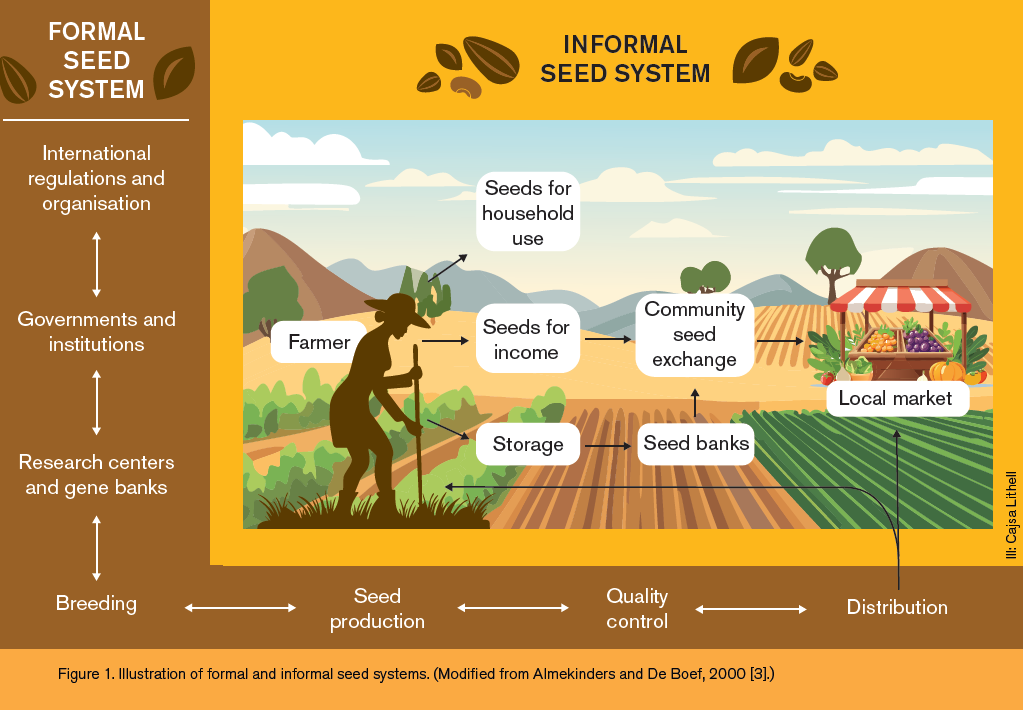A new policy brief highlights the importance of social capital in facilitating smallholder farmers’ access to seeds that are adapted to local climatic contexts. Focus is on the structure of farmers’ informal seed systems, where the majority of seeds are distributed.
Seeds are the foundation of agriculture and are key to ensuring food security, nutrition, livelihoods, and achieving Sustainable Development Goal 2 – Zero
Hunger. Well-functioning seed systems have a large positive impact on smallholder farmers’ everyday life and health – especially in low- and middle-income countries, where agriculture accounts for a large share of the economy and people’s livelihoods.
Seed systems also play a vital role in efforts to adapt food production to climate change, and ensuring that they are robust and resilient to shocks is critical to safeguard agriculture as a whole. It is therefore vital to understand potential weaknesses in seed systems, how these affect different groups of society, and the social factors that contribute to resilient seed systems.
In a recent policy brief, produced by SLU Global, you can learn about formal and informal seed systems, how the social capital can reduce the risk of communities becoming aid dependent in protracted crises, and what key action points can be taken to enhance the synergies and linkages between the two systems.

Key messages
- Smallholder farmers have limited access to highquality
seeds due to the narrow structure and few actors of formal seed systems. Smallholders instead tend to obtain the majority of their seeds through informal seed systems.
- Informal seed systems are vital when government institutions and NGOs have limited presence, or when formal supply chains break
down – as in the case of sudden or protracted
shocks and crises.
- Smallholders’ main concern during shocks and crises is usually their limited access to seeds, rather than scarcity of seeds per se. Initiatives that re-enforce social capital within seed systems can enhance access to available seeds.
- Enhancing social capital by supporting the development of farmers’ networks can reduce inequalities in seed systems, increase resilience to shocks, and function as a local safety net.
Read the full brief and the recommended action points here.

